Research Reports
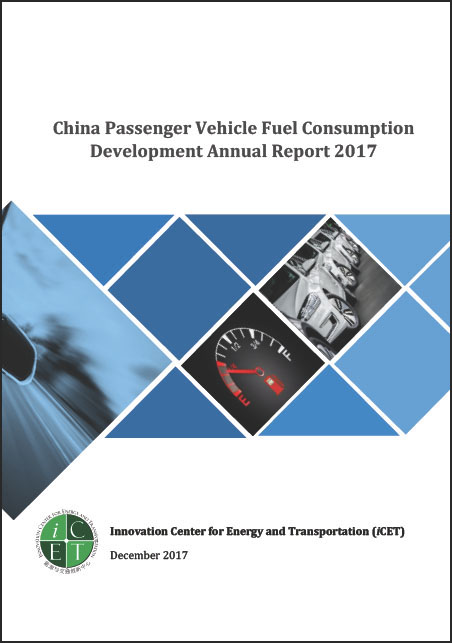
China Passenger Vehicle Fuel Consumption Development Annual Report 2017 (December 2017)
iCET has been involved in the drafting of China fuel standards since its first iteration and has been tracking its development since. This report is the 7th iCET Annual Report evaluating China CAFC standard implementation status with recommendations for policy. This year the report, although covering various aspects of China corporate FC development, places considerable focus on the joint management mechanism of China existing CAFC standard and the newly introduced NEV credits system. The highlights of this year report are grouped around three themes: (I) fuel efficiency and the CAFC standard regime, (II) NEV super-credits (flexibility mechanism) and CAFC performance, and, (III) the newly introduced NEV credits system and the CAFC standard regime.
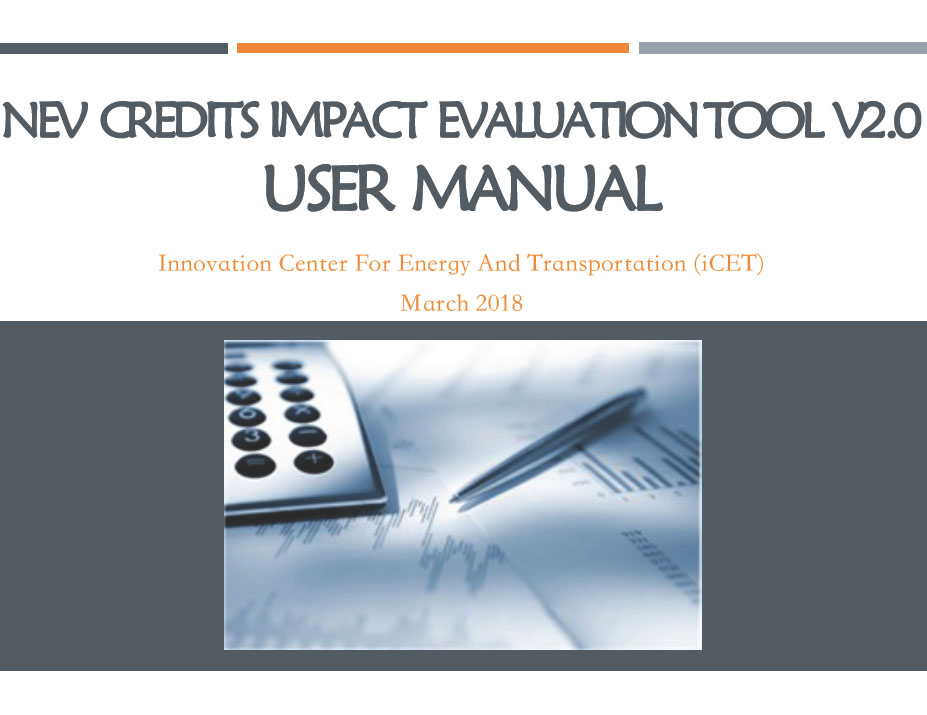
NEV Credits Impact Evaluation Tool v2
The excel-based NEV credits impact evaluation tool is designed to support policy-design, impact evaluation research, and company compliance strategy with China new CAFC and NEV credits joint management mechanism. The tool offers a comparison between two NEV credits designs (default are the MIIT NEV credits and California ZEV designs), manufacturing projections based on Game Theory inputs, and resulted NEV volume and subsequent carbon emissions reduction. Users can change some of the data and assumptions to fit their own case studies.
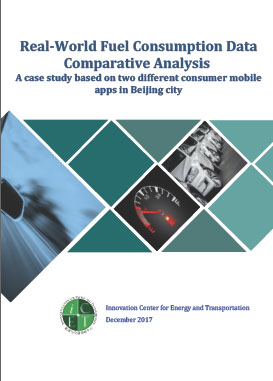
Real-World Fuel Consumption Data Comparative Analysis-A case study based on two different consumer mobile apps in Beijing city
There are increased interests in new data sources for evaluating the effectiveness policies that guide the development of the transportation sector, especially after the emergence of several notable emission scandals. However, few studies analyze these new data sources. Their applicability and usefulness are rarely compared and not well understood. This study attempts to fill this gap by drawing comparisons between two new data sources useful for assessing the actual fuel consumption (FC) of passenger cars: semi-manual calculation of FC through a dedicated app (BearOil, or Xiaoxiong) and automated FC (and other data points) collection by an On-Board Diagnostics (OBD) app (ZhiJiaXing). The study compares data features, statistical robustness and analysis results of the two datasets in a Beijing case study.
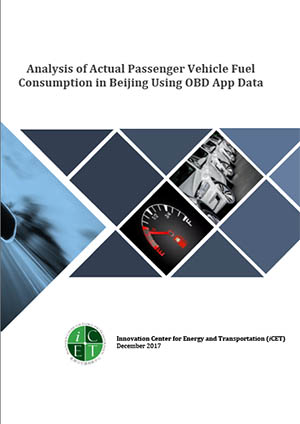
Analysis of Actual Passenger Vehicle Fuel Consumption in Beijing Using OBD App Data(December 2017/ Clean Transportation Program)
As it has become evident that the gap between the actual and reported FC rate is increasing, so much so that it is actually outpacing any improvements in stringency made over the years in the policy itself. This report attempts to re-examine China’s FC gap using an automated data source instead of a manual voluntary data source. The data is provided by the On-Board Diagnostics (OBD) mobile app, Beijing Wisdom Travel Technology Co., Ltd. (北京智驾出行科技公司), and reflects inputs collected over a period of eight years from 55 models with some 180,000 owners and accounting for over 25 million data points. This report analysis is focused on China’s capital city of Beijing, which is characterised by, at times, extreme congestion even with a vehicle registration cap in place since 2010. It examines by transmission type variations, segmentation differences, temporal variations, and speed related FC differentiations.
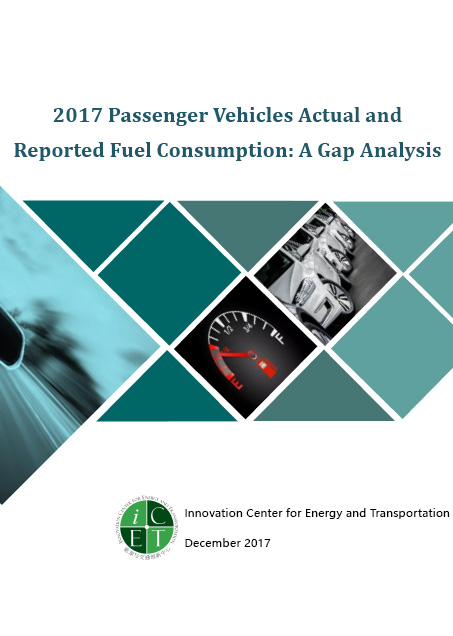
2017 Passenger Vehicles Actual and Reported Fuel Consumption: A Gap Analysis(December 2017 )
This third annual report, assesses the gap between reported and real-world fuel consumption (FC) of passenger cars in China. It uses the factual FC data gathered by BearOil App (Xiaoxiong) which includes about 600,000 owners and over 15 million data inputs inserted between 2008 and 2016, covering 17,000 vehicle models in 31 cities in China. The analysis includes by-segment, by-brand, by-model year, by-weight, and by-transmission FC gaps.
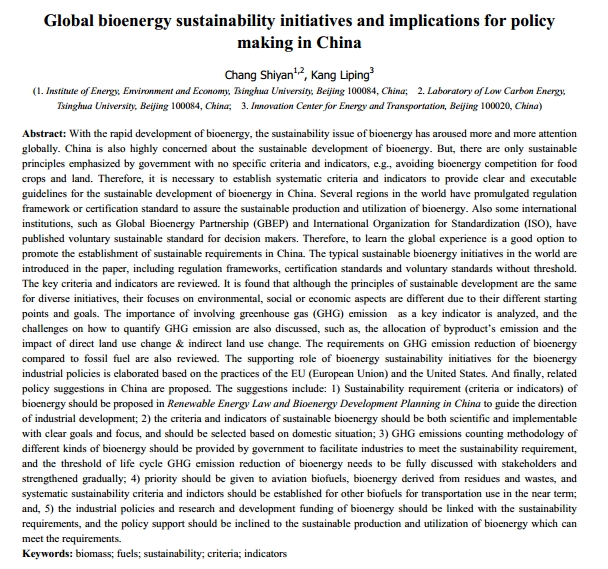
iCET co-authored the paper entitled Global bioenergy sustainability initiatives and implications for policy making in China(June 2017)
iCET Clean Transportation Senior Manager, Kang Liping, co-authored an academic paper on global bioenergy sustainability initiatives and implications for policy making in China with associate professor Dr. Chang Shiyan of Tsinghua’s Institute of Energy, Environment and Economy. The paper aims at stablishing systematic criteria and indicators to provide clear and executable guidelines China’s sustainable bioenergy development. The paper builds on regulation promulgated in several regions in the world as well as works of international institutions, such as the Global Bioenergy Partnership (GBEP) and the International Organization for Standardization (ISO).
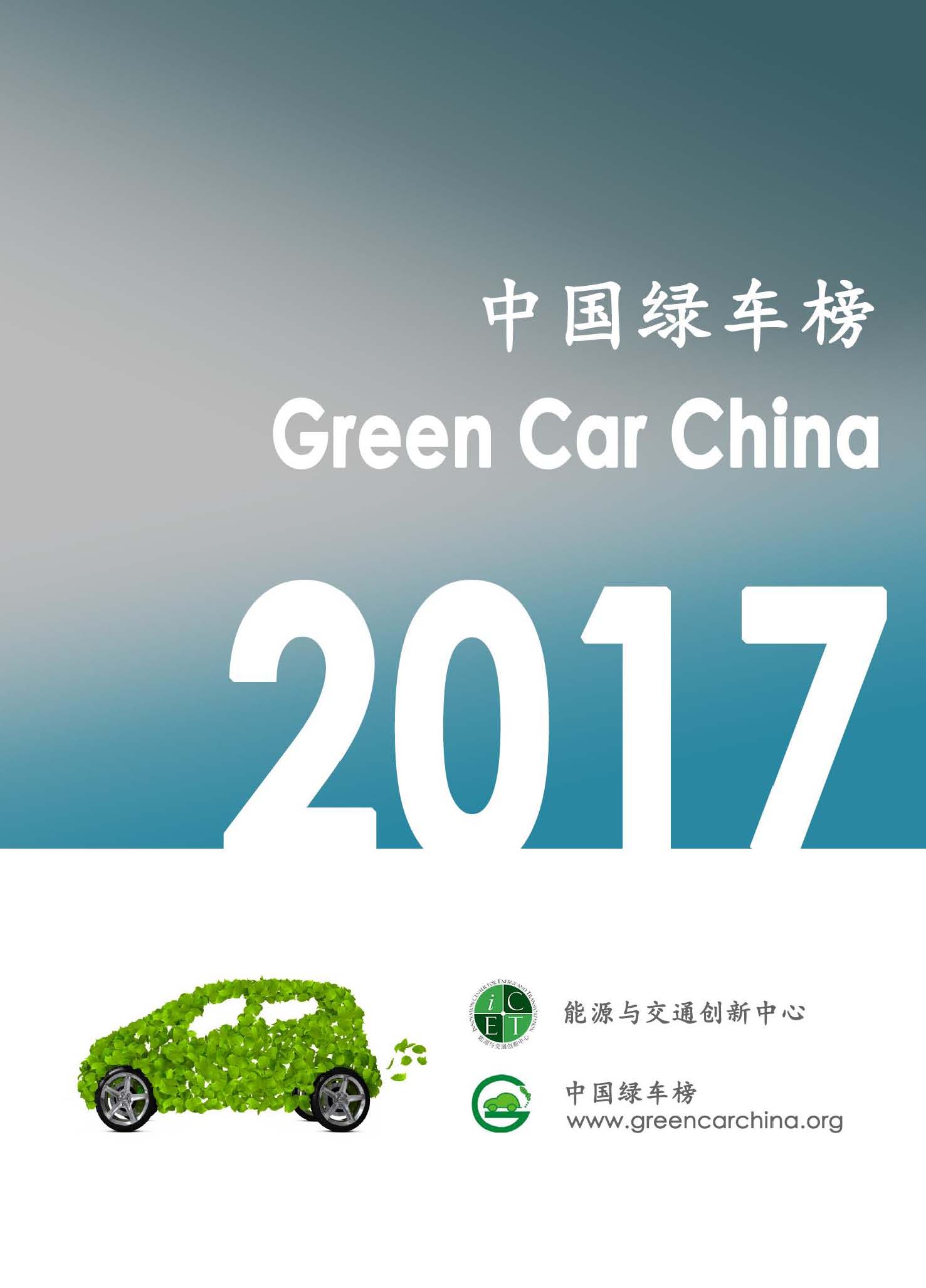
2017 China Green Car Finalists (August 2017/Chinese)
Showing rankings of the Top 10 most environmental-friendly vehicle models in China (including rankings of Green Score and Blue Score) and systematically summarizing trends of change in scores in the past three years, the brochure aims to help consumers know about the improvement of vehicle environmental performance in China and encourages consumers to choose vehicle models with less environmental pollution. Moreover, 2017 China Green Car Finalists add a green car best-selling list based on real-world fuel consumption, guiding consumers to pay more attention to vehicle real-world fuel consumption and emissions as well as participate into green travel.
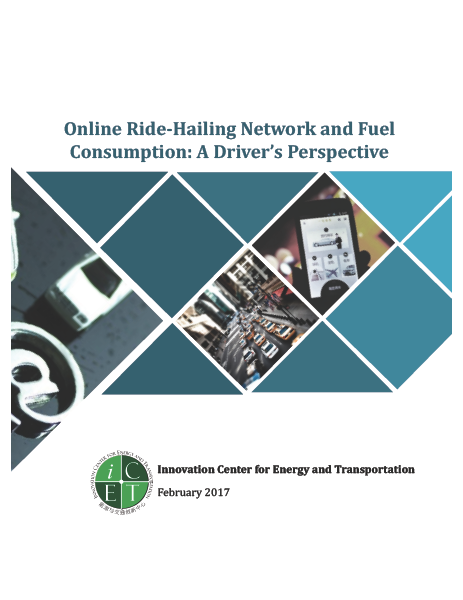
Online Ride-Hailing Network and Fuel Consumption: A Driver’s Perspective (February 2017/ Clean Transportation Program)
The online ride-hailing network has transformed China’s urban mobility and has the potential to deliver significant air quality improvements and advance urban smart mobility. However, the environmental pros and cons of the network have not yet been thoroughly investigated and the information about actual trips and design of the network operation has largely remained in the private sector’s domain. Prior to the pursuant of “hard” data which require close interactions with operators and government, this study demonstrates that easily accessible “soft” data such as qualitative interviews can be collected for guiding the design of future research, such as surveys, data sorting, and data compiling.
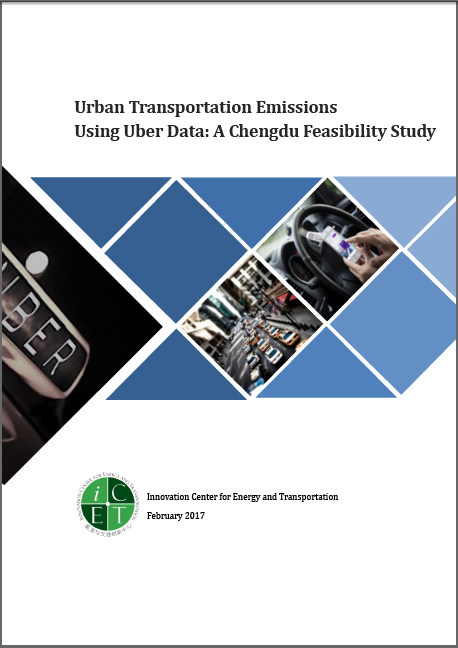
Urban Transportation Emissions Using Uber Data: A Chengdu Feasibility Study
The goal of this novel Uber feasibility case study is of two-folds: (i) to demonstrate that the use of ICT sources for gathering data relevant for urban transport emissions and policy is of value both because it is valid and it is relatively resource-efficient. The study does so by employing ICT-inducted trip data gathered and provided (for free) by Uber Chengdu; (ii) to estimate real-world carbon emissions using Uber data in combination with an urban emissions model (COPERT), and assess gaps between reported fuel consumption and actual fuel consumption.
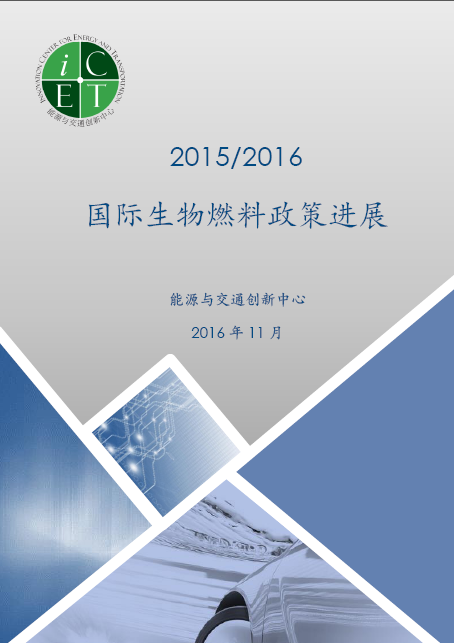
2015/2016 International Biofuels Policy Progress (November 2016/Chinese)
In the past two years, the falling international oil price has caused huge impacts on biofuels development. However, due to upgrading resources and environmental problems, governments still remain a positive attitude towards the biofuel industry. This report summarizes the latest developments of biofuels policies in various economic bodies since 2015, including the United States, European Union, Brazil and China, providing a reference for practitioners in related industries. iCET has rich experience in biofuel research, actively participates in the formulation of domestic biofuel policies and regulations in China, promotes international communication in this field, and promotes development of clean low-carbon transportation fuels.